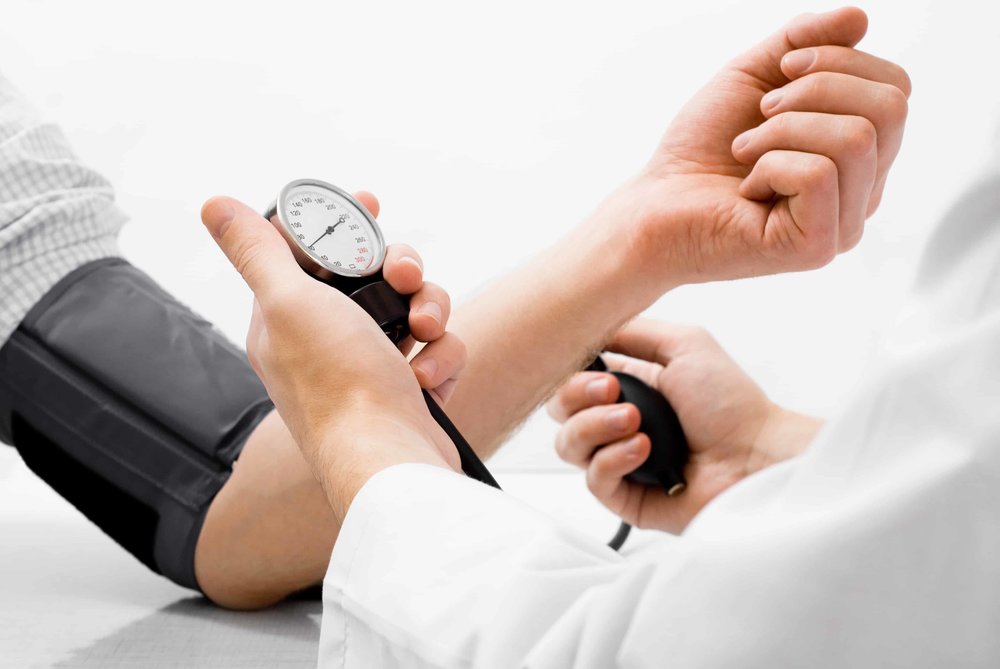
Can High Blood Pressure Be Life-Threatening? Here’s What You Should Know

High blood pressure (commonly referred as hypertension), is a long term condition in which the blood pressure remains persistently elevated in the arteries. The symptoms of HBP are usually not very visible, but its impact is quite damaging in the long term. For example, a person can suffer from a heart attack, stroke, loss of vision, kidney disease and memory loss if high blood pressure is left untreated.
There are two classifications of high blood pressure: primary and secondary. About 95% of people have primary high blood pressure, under which hypertension is caused either because of an inappropriate lifestyle or for genetic reasons. Life style factors that increase the risk of high blood pressure include excessive use of alcohol, smoking, being obese, and also the use of excess salt. Also, about 5% of the people who suffer from secondary high blood pressure usually have endocrine disorders or kidney diseases as well.

High blood pressure is a long term condition in which the blood pressure remains persistently elevated in the arteries
The Symptoms You Need To Look Out For
High blood pressure usually does not show any identifiable symptoms. Many times it is diagnosed either at the time of a routine medical checkup or when you are visiting a healthcare provider for something entirely different although possibly interconnected. In some cases, high blood pressure is accompanied by obvious symptoms like a headache on back side of the head or the sensation of being light-headed, the severity of which can vary according to the intensity of the blood pressure problem.
Blood pressure is usually measured by taking both the systolic as well as the diastolic readings on a blood pressure monitoring device. When the systolic reading is greater than 180 and the diastolic reading is greater than 110, a state of hypertensive crises occurs which calls for an emergency response. Hypertensive emergency, if left untreated for a long period of time, can lead to organ damage or nerve damage.
The organs which are at the highest risk during hypertensive crises are the brain, the heart, the kidneys and the lungs, each of which face a variable yet a very high risk factor. When an organ is damaged, a person usually feels pain in the chest, or a sensation of drowsiness, confusion or breathlessness.

High blood pressure usually does not show any identifiable symptoms
The Causes You Should Know To Avoid
Primary hypertension, as we have mentioned above, is caused as a result of either a person’s genes or a person’s environmental factors. According to studies, high blood pressure can occur due to different variations in the gene structure. These factors come into play as a person ages, causing one to become hypertensive in the later stages of life.
Depression also plays a crucial role in causing high blood pressure. Depression, if accompanied by obesity and little to no exercise, can increase your risk of suffering from an increasingly elevated blood pressure. People who suffer from insulin resistance may also suffer from high blood pressure once they cross into obesity.

According to studies, high blood pressure can occur due to different variations in the gene structure
Sometimes, high blood pressure occurs due to factors originating in your early childhood. According to research studies, a child, who has a lower than normal weight at the time of birth, may suffer from a high blood pressure later in life. If the mother smokes during her pregnancy, or does not breastfeed her child, then the risk that the child will suffer from high blood pressure in the later stages of life increases.
Secondary blood pressure occurs either as a result of kidney disease or the narrowing of kidney arteries. Endocrine diseases which contribute to the occurrence of secondary high blood pressure include Cushion’s disease, Conn’s syndrome, hyperthyroidism, and hypothyroidism.
High blood pressure may also occur as a side effect to the use of certain medicines that treat sleep disorders, anxiety and depression. Women who consume alcohol or are addicted to smoking are at a greater risk of developing high blood pressure as compared to men.
The Treatment You Should Seek
You can treat high blood pressure either by making changes to your lifestyle or through the use of medicines. If your blood pressure does not get under control even with extensive lifestyle changes, then it’s best that you take appropriate medication on regular basis. This is important as about 18% of deaths are caused due to hypertension, so you should not take a risk with your HBP.
More in Medical Conditions
-
Is It Safe to Travel to Paris? Essential Tips for Tourists
When considering a trip to Paris, one of the first questions that often arises is, “Is it safe to travel to...
June 20, 2024 -
Hematoma vs Bruise: What Is the Difference?
When it comes to injuries, hematoma vs bruise are often used interchangeably, but they refer to different medical conditions. Understanding the...
June 12, 2024 -
What Is Unipolar Depression? Here’s What You Need to Know Right Now
Depression casts a long shadow over many lives, with symptoms that affect everything from our energy levels to our ability to...
June 7, 2024 -
A Comprehensive Guide on How to Heal Anxious Attachment Style
If you often find yourself seeking constant reassurance from your partner or requiring endless validation to feel secure, you may be...
June 1, 2024 -
Why Is My Skin Peeling on My Face After Skincare? Here’s What You Need to Know
Experiencing skin peeling on your face after implementing a skincare routine can be perplexing and frustrating. This phenomenon, where the skin...
May 23, 2024 -
What Is a Mental Edge, and How Do You Get It?
Have you ever wondered why some individuals seem unshakably confident under intense pressure, finding a way to excel when it matters...
May 15, 2024 -
When to Worry About Varicose Veins? Here’s What You Need to Know
Varicose veins are a common issue, affecting about 20% of adults. They’re usually seen as unsightly blemishes on the legs but...
May 12, 2024 -
Why Is Discipline Important: The Ultimate Guide to the Importance of Discipline
Discipline is undoubtedly one of life’s most crucial character traits. It shapes how we approach tasks, manage our time, and...
May 3, 2024 -
Have I Fallen Out of Love or Am I Depressed? Everything You Need to Know
Have I fallen out of love or am I depressed? You’re not alone in this query. In the diversity of human...
April 26, 2024















You must be logged in to post a comment Login